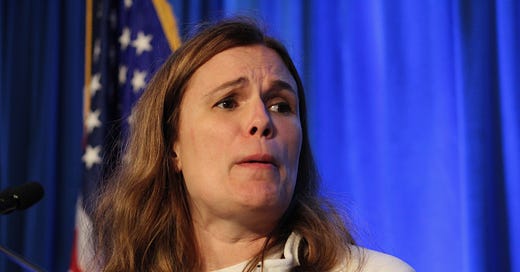Federal judge sends election dispute back to state Supreme Court
With a Friday certification date approaching, Supreme Court Justice Allison Riggs' apparent victory over Court of Appeals Judge Jefferson Griffin may be decided by her GOP colleagues.
More than two months after the Nov. 5 election, there’s just one race that has yet to be certified: the state Supreme Court contest where Democratic incumbent Allison Riggs leads GOP challenger Jefferson Griffin by 734 votes.
Griffin is seeking toss out more than 60,000 votes, largely arguing that those with incomplete registration paperwork should have their ballots discarded.
Last month, the State Board of Elections rejected Griffin’s protests and concluded there weren’t enough potential outstanding votes for Griffin to overcome the 734-vote deficit. In an effort to overturn his apparent defeat, Griffin had asked the 5-2 conservative majority state Supreme Court to step in. Riggs swiftly recused herself from the matter.
The state elections board and Democratic leaders then got the matter transferred to a Trump-appointed federal judge who had rejected similar GOP efforts to remove registered voters from the rolls ahead of the November election. But on Monday, that very judge Democrats had hoped would settle the dispute sent the matter back to the state Supreme Court.
“Should a federal tribunal resolve such a dispute?” U.S. District Judge Richard Myers wrote on Monday. “This court, with due regard for state sovereignty and the independence of states to decide matters of substantial public concern, thinks not.”
Barring judicial intervention, Riggs is scheduled to become the certified victor on Friday. But Monday’s decision from Myers gives Republicans hope for the election to be overturned. On Tuesday, Riggs and the State Board of Elections appealed Myers’ decision to the 4th Circuit Court of Appeals in an effort to prevent any action from the state Supreme Court.
GOP leaders argue they merely want to ensure every lawful vote is counted. Democrats accuse Griffin of trying to hijack an election.
Since a 2002 Supreme Court ruling against Democrats on redistricting and the time Supreme Court elections reverted back to partisan contests in 2018, the high court has become increasingly politicized. How the Supreme Court acts or doesn’t act stands to reaffirm or chip away at that public perception.
Meanwhile, three legislative Democrats had their victories certified on Monday: Sens.-elect Terence Everitt and Woodson Bradley and Rep.-elect Bryan Cohn. With the process finalized, they’ll be seated on Wednesday.
Legislative and statewide judicial races go through different appeals processes, hence the four-day gap between the time legislative Democrats and Riggs could have their wins certified.
Update: This story was updated at 10:55 a.m. Tuesday to reflect the State Board of Elections appealing the matter to the 4th Circuit Court of Appeals and seeking to prevent the North Carolina Supreme Court from taking action.




